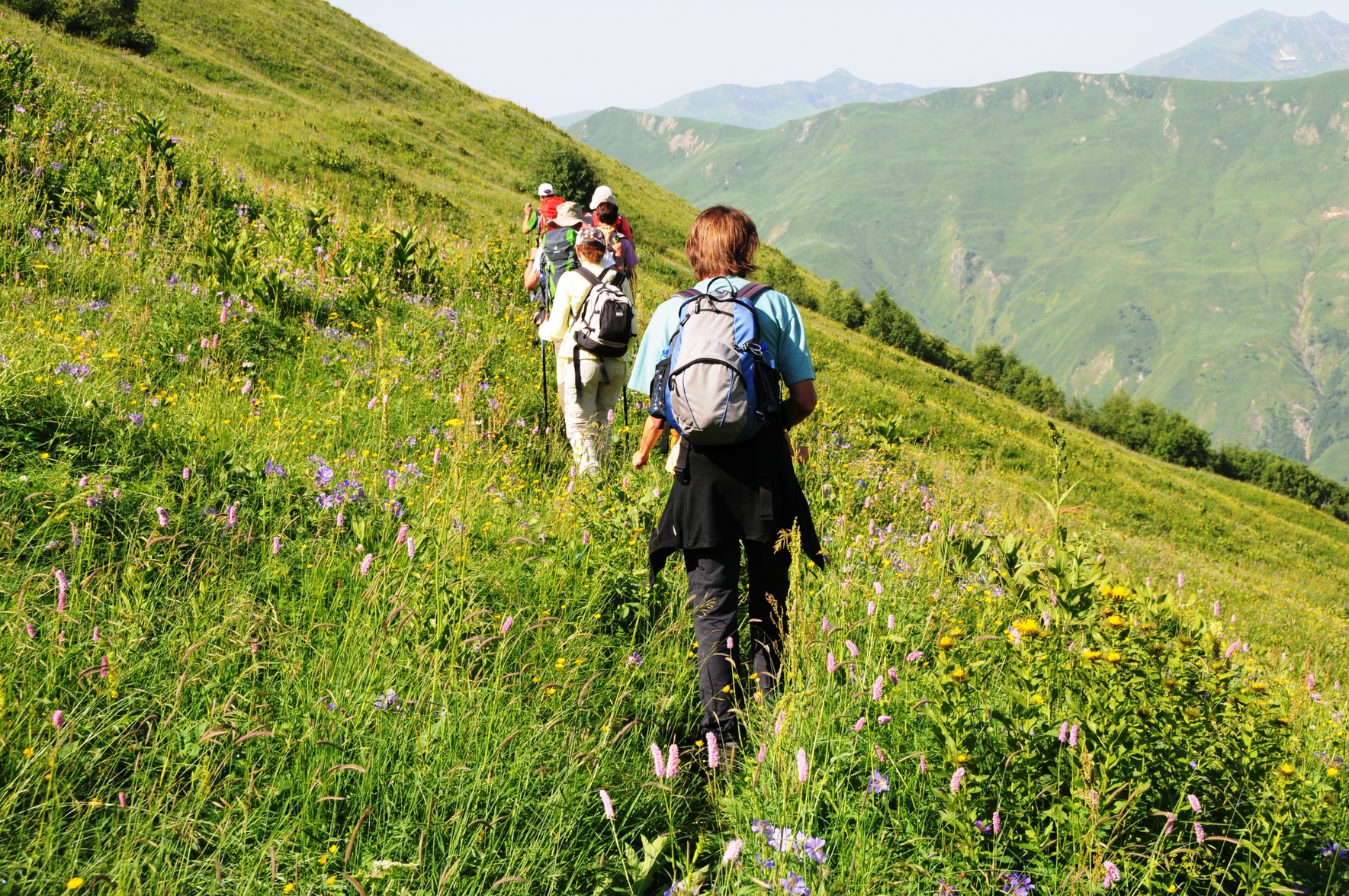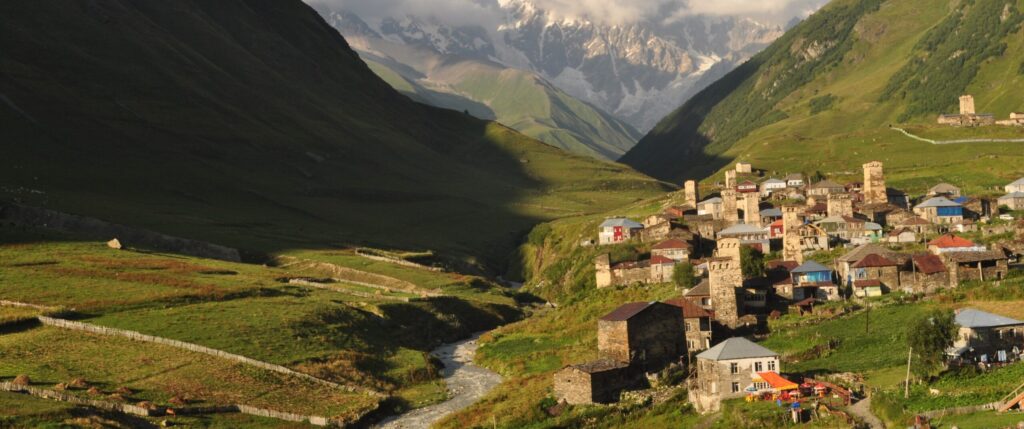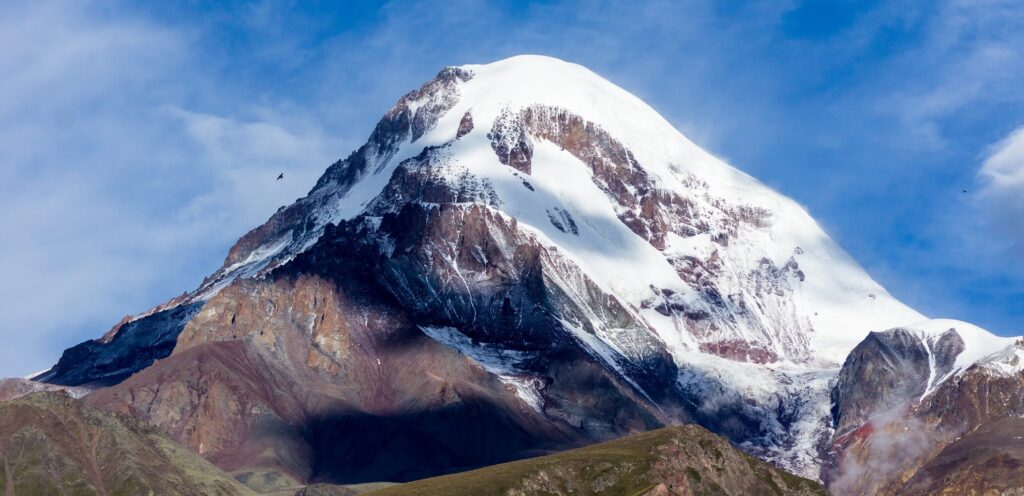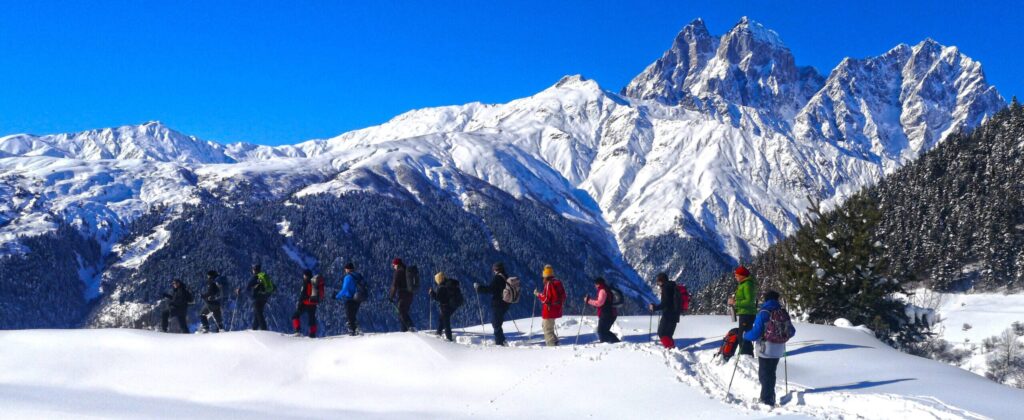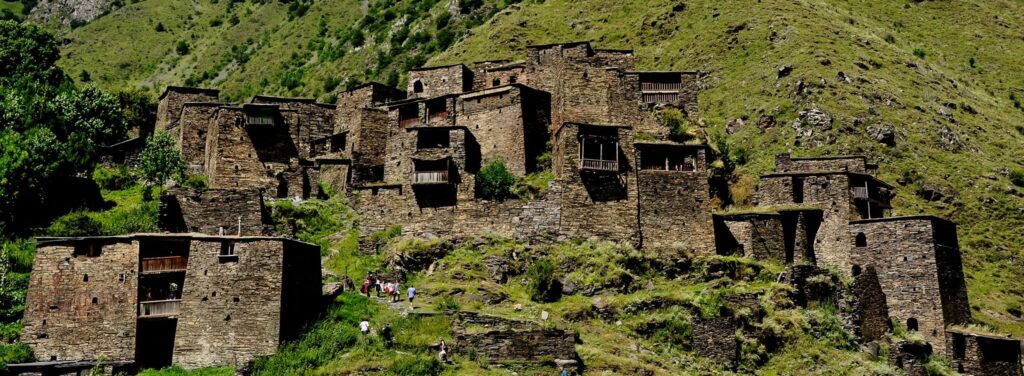There are many hiking trails in Georgia. This is an active holiday destination that truly offers a variety of quality trekking trails and safety for every hiking fan and alpinist. There’s nothing quite like trekking in the mountains of Georgia, being surrounded by the Caucasus giants.
Are you seeking adventure travel?
Hike in the Mountains of Svaneti
Trekking lovers unearthly paradise - Svaneti. Amazing views, deep valleys, the great Caucasus with glorious peaks covered with eternal snow, fast mountain rivers, and beautiful waterfalls, all together make Svaneti an ideal place for adventure travelers.
Trekking in the Nature of Tusheti
Explore Tusheti a pristine, remote region tucked in the mountains of northeastern Georgia. Trekking in stunning alpine meadows, hike to medieval villages, walk near the ruins of fortresses, and snowy peaks, and enjoy unspoiled Caucasus mountains.
Trekking in the Valleys of Kazbegi
Discover Kazbegi's is a real heaven for hiking seekers. Trekking in the evergreen snow-capped great Caucasus, majestic glaciers, and walking through narrow valleys, waterfalls, and green slopes, that’s what attract wildlife adventurers in the Kazbegi region.
Climb Up Mount Kazbegi
Climbing up Mount Kazbegi – offers the perfect opportunity to witness and experience the Caucasus Mountains in their purest form. Snow-capped peaks in winter and summer have become a source of inspiration for many Trekking lovers .
Snowshoe Tour in Georgia
Snowshoeing tour to mount Kazbegi and the amazing Svaneti area in Georgia is for you! Magical colors of winter with unspoiled landscapes and snow-capped Caucasus mountains surround to create a special atmosphere for an unforgettable trip. This tour fill us with positive emotions.
Hike Through the Caucasus
Hike through the Caucasus promises an unforgettable adventure. What makes this trail truly special is the eerie atmosphere and the feeling of stillness. This hike will fill you with special emotions and take you to the mystical mountains of Georgia.
Things To Know Before You Go Trekking Georgia

Trekking adventure in Georgia
Georgia offers an enchanting experience for nature lovers as well as adventure seekers who like trekking and rock climbing on their holidays and weekends, because of the amazing scenery along the way.
Georgia’s trekking trails are packed with spectacular sights and stunning views. It is home to the most exciting trekking paths and it doesn’t matter whether you prefer exploring its medieval villages or undertaking long treks in the wilderness, you can enjoy it all.
Georgia trekking tips to know
Trekking is one of the best adventures out there to enjoy time away from the chaos of the city, get some fresh air, and expand your limits. But, don’t expect nature to embrace you with warmth and comfort. If you are not prepared to resist its hurdles, you will be heading home sooner than you ought to.
Weather variability in the mountains is not uncommon for trekking lovers, and the mountains of Georgia are no exception as well. In the morning, the scorching sun may shine, while in the middle of the trekking, there may be rain showers, etc.
Top 5 personal items for trekking Georgia
- ZA pair of sunglasses
- ZLoads of sunscreen
- ZLip balm
- ZReusable water bottles
- ZHand sanitizer
When is the best time to visit Georgia for trekking?
Trekking is best enjoyed in Georgia in late spring and early summer. Before this, traveling to the mountains can be made difficult by melting snow and occasional landslides, while from late July the summer can be very hot. Each trekking trail is different though, and winter offers other options, such as skiing and snowshoeing.
If you want to do some serious multiday trekking, you should wait till late June – nature is at its best, and everything is green and blooming. However, there is a price – May and June are the rainiest months of the year.
In July and August weather becomes more stable and dry – this period is considered to be a “high season” for trekking. Good conditions usually persist for most of September, then become gradually worse.
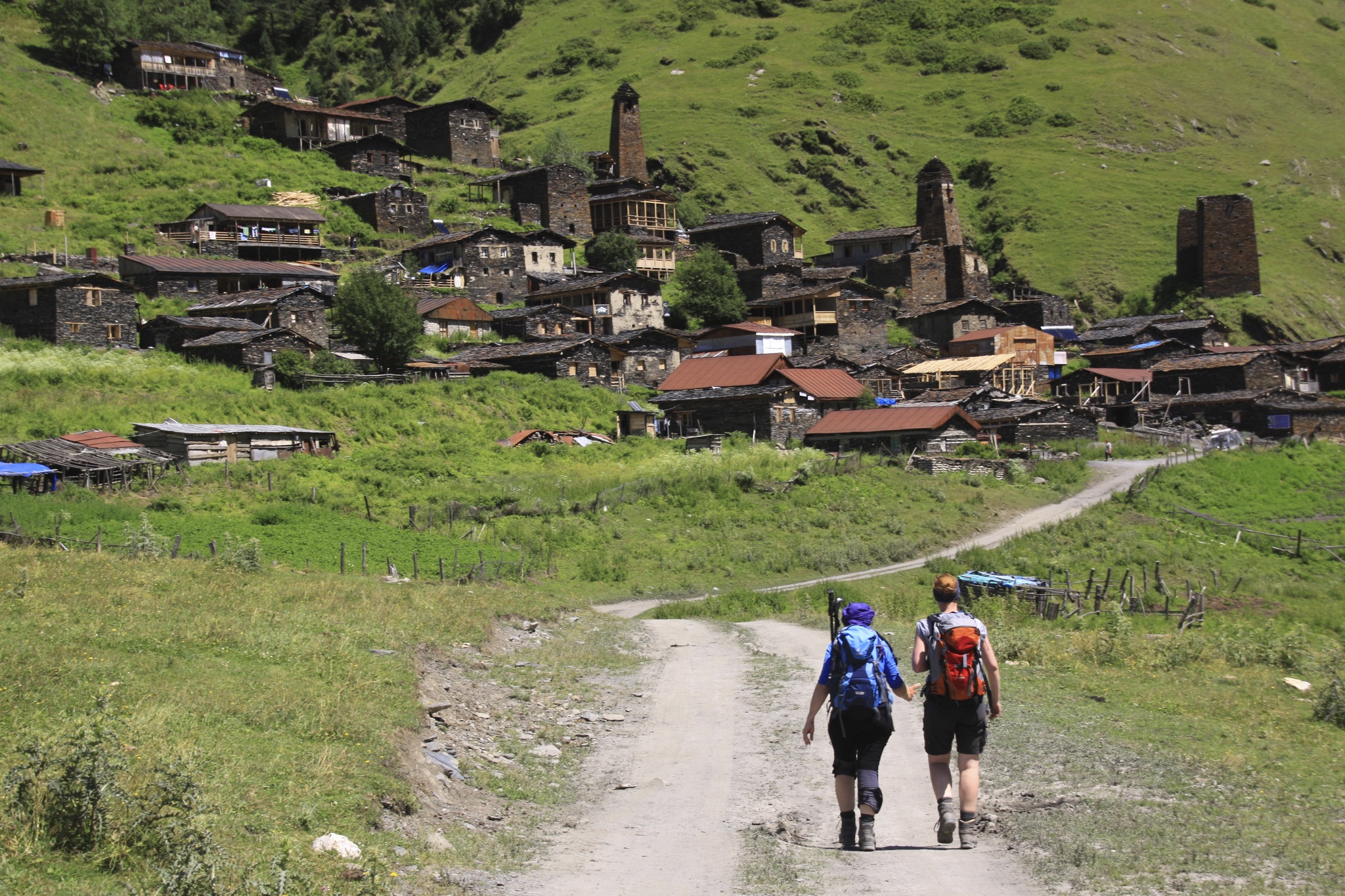
What to wear for trekking Georgia?
To make your trekking experience more enjoyable and stress-free is always useful to plan ahead not only your clothing but what to pack for a hike. Trekking is one of the best adventures out there to enjoy time away from the chaos of the city, get some fresh air, and expand your limits. But, don’t expect nature to embrace you with warmth and comfort. If you are not prepared to resist its hurdles, you will be heading home sooner than you ought to.
Trekking Pants - Shorts - Leggings
For trekking pants, you need to pay attention to fit, comfort, durability, and breathability. Convertible pants are a great option as they are flexible.
For long hikes, you’ll also want to bring rain pants. Or check how much heavy rain your plants can sustain. In any case, I always bring my rain pants and this is probably one of my best tips for hiking in the rain. On multi-day hikes, you also need to bring spare leggings just in case.
T-shirts - Insulating jacket - Waterproof jackets
When you go trekking be sure to bring long/short-sleeved t-shirts or a shirt to keep you comfortably warm. SPF protective t-shirts can save you loads of pain.
As for the trekking jackets, pick a jacket that won’t give away to the cold weather. It can be made from wool, down, or other synthetics. Insulation won’t work if your jackets get wet, especially if it’s your own material. So, cover it with a light/thick water-resistant jacket.
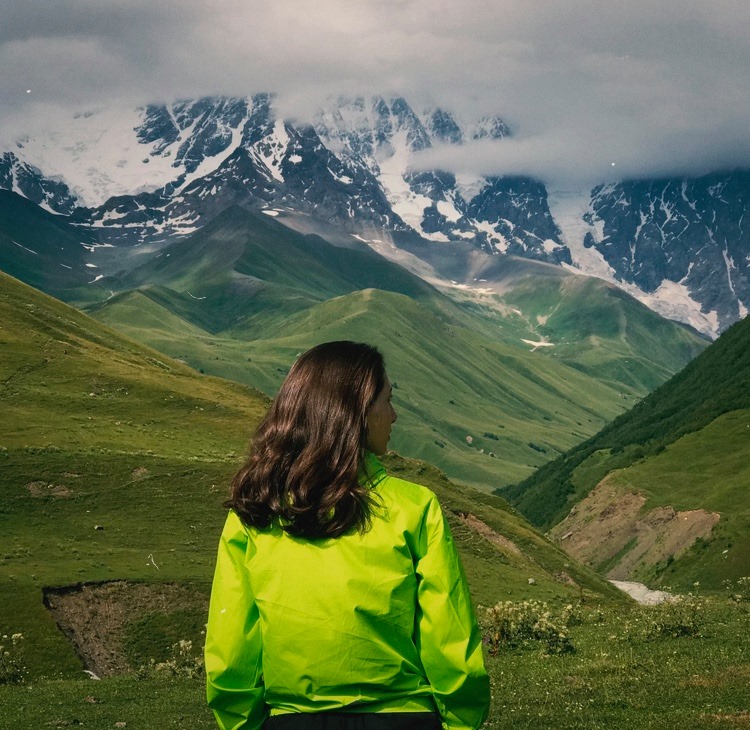
Trekking shoes/boots
When planning a hike, properly fitted boots or trekking shoes are the first line of defense against foot and ankle injuries that may include: blisters, sprains, and fractures. It has been estimated that roughly 60% of people have different sized feet, so when shopping for proper hiking gear, always fit for the larger one.
Trekking Hat - Cap - Beanie
In addition, to properly fit footgear such as boots or trekking shoes, your sock choice is important. When choosing the appropriate socks, I look for specific characteristics to help prevent foot injuries. An ideal sock has moisture-wicking capabilities, fits snuggly, and should not have large seams or harsh pressure points. The best moisture-wicking materials include synthetic materials or wool. It is best to avoid cotton.

What to wear trekking in summer ?
Ideally, summer requires light, loose-fitting clothing. Also, choose lighter shades as they reflect heat rather than absorb it like darker ones.
The best fabrics for summer hiking are wool, polyester, and nylon, as they absorb sweat and dry faster. These moisture-wicking fabrics prevent skin conditions like dermatitis, which can cause skin irritation and itching.
Cotton and linen are other options when trekking in moderately warm conditions. But keep in mind that cotton can easily be your enemy while trekking.
While it’s tempting to wear shorts and sleeveless tops, they’re not great for hiking. You should be prepared to spend a few hours outdoors, which means you will be exposed to the sun easily. Not only does your skin become dry, burnt, and blotchy, but it’s also vulnerable to UV rays.
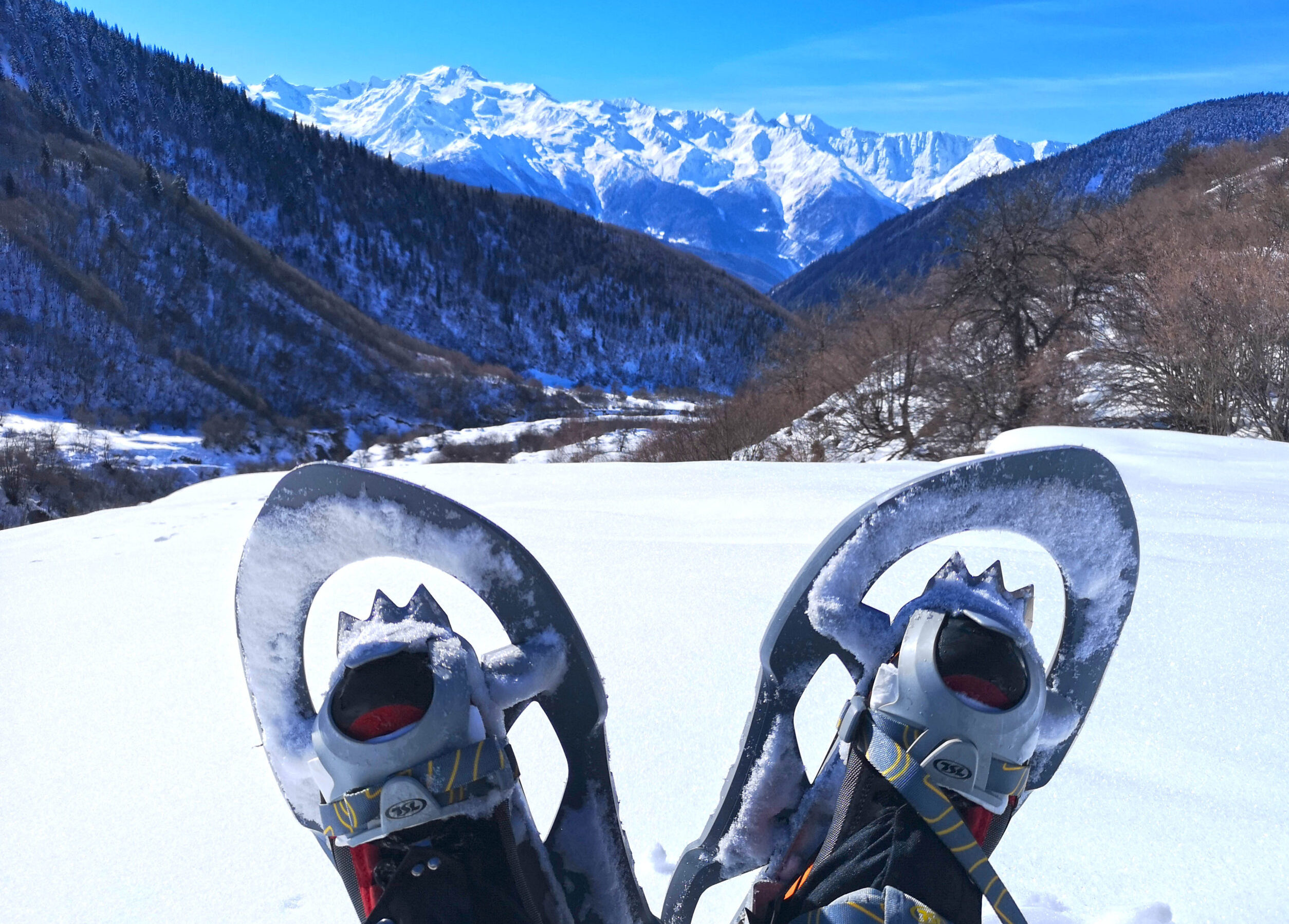
What to wear trekking in winter ?
Layer your clothes like an onion when trekking in winter! It is important to capture the heat emitted by the body to provide the necessary insulation and warmth. Wearing extra layers in winter can also help control your body temperature.
So what is involved in this layering technique? Layers include base layers, intermediate layers, and outer layers.
The bottom layer consists of intimate clothing or underwear. The purpose is to keep sweat away from the body. In winter, choose underwear that is long, fitted (not tight-fitting), and most importantly, moisture-wicking.
Even if you cherish your trusty naive cotton shorts, you know they can hurt you by wicking your sweat and keeping you cold! So, as a rule of thumb, avoid cotton fabrics when considering what to wear on a winter hike. Choose synthetic fibers like polyester or natural fabrics like wool.
25+ Years of Trust
More than 350 partners worldwide chooses VisitGeorgia.
Responsible Company
Making better places for people to live in and better places for people to visit.
Variety of Tours
From cultural to adventurous, we have something for everyone.
